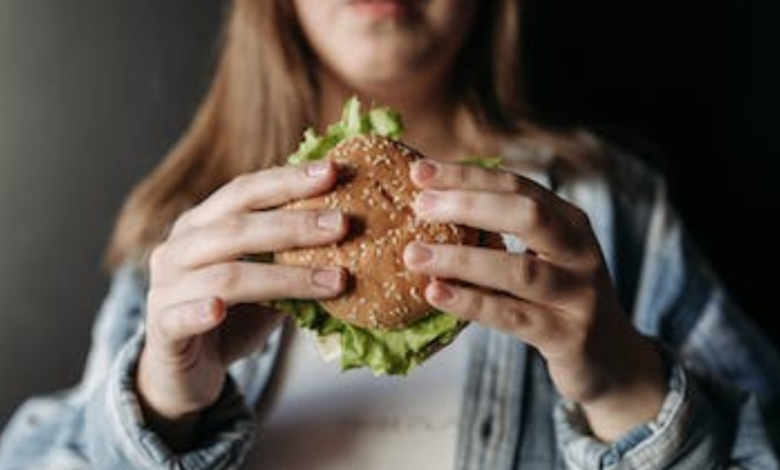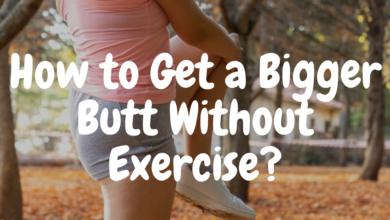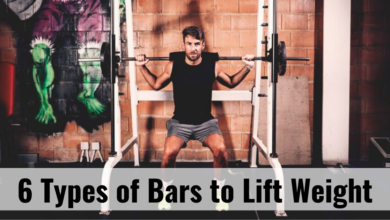Why Do You Get Hungry After Physical Exercise?

After physical exercise, it is common to feel hungry despite the energy expended during the workout. Physical exercise offers numerous health benefits, but the post-workout hunger experience can be puzzling for many individuals.
This phenomenon can be attributed to a combination of physiological and psychological factors. Physiologically, intense exercise stimulates the body’s metabolic processes, leading to an increase in energy expenditure and a subsequent demand for replenishment. Additionally, exercise can also affect hormones and neurotransmitters that regulate appetite, contributing to an increased sensation of hunger.
Understanding the reasons behind post-exercise hunger can help individuals make informed choices regarding their nutrition and optimize their fitness routines.

Understanding Hunger and Physical Exercise
Hunger and physical exercise are interconnected aspects of our overall well-being. Understanding their relationship is crucial for maintaining a healthy lifestyle.
Hunger is our body’s way of signaling that it requires nourishment. When we engage in physical exercise, our body’s energy expenditure increases, leading to the depletion of stored glycogen and fat. This depletion triggers hunger signals as our body seeks to replenish its energy reserves.
Engaging in regular exercise can affect our appetite regulation. It has been observed that intense physical activity can temporarily suppress appetite, leaving us less hungry after physical exercise. On the other hand, moderate exercise may increase our appetite. Furthermore, exercise can influence the levels of specific hormones involved in appetite control, such as ghrelin and leptin.
Proper nutrition plays a vital role in supporting physical activity and optimizing its benefits. Consuming a balanced diet that includes carbohydrates, proteins, and healthy fats can provide the necessary energy for exercise and aid in muscle recovery and growth.
Impact of Physical Exercise on Hunger Hormones
Physical exercise has a significant impact on hunger hormones, affecting appetite regulation and food intake. When we engage in moderate to high-intensity exercise, levels of certain hormones, such as ghrelin and peptide YY (PYY), are influenced. Ghrelin, often referred to as the “hunger hormone,” is secreted by the stomach and increases appetite. Exercise has been found to suppress ghrelin production, leading to a decrease in feelings of hunger.
Conversely, PYY, an appetite-suppressing hormone produced in the gastrointestinal tract, is elevated during and after exercise. This rise in PYY levels helps to reduce food intake and promote feelings of fullness.
Regular physical activity has been linked to improved insulin sensitivity, which can influence hunger hormones and make individuals feel less hungry after physical exercise. Increased insulin sensitivity helps regulate blood sugar levels, reducing the likelihood of insulin resistance. As a result, this can lead to better appetite control and decreased cravings for high-calorie foods.
Energy Expenditure during Exercise
Energy expenditure during exercise refers to the amount of energy the body uses to perform physical activity. It is influenced by various factors such as exercise intensity, duration, body weight, and individual fitness levels.
During exercise, the body relies on different energy systems to meet the increased energy demands. The main energy sources include stored ATP (adenosine triphosphate), creatine phosphate, and various metabolic pathways that utilize carbohydrates, fats, and proteins.
The intensity and duration of exercise impact energy expenditure, with high-intensity activities requiring more energy. Additionally, individuals may feel hungry after physical exercise, particularly with longer durations.
Body weight affects energy expenditure as well. Generally, heavier individuals expend more energy during exercise due to increased work required to move their body mass.

Increased Energy Demand and Hunger
The world is currently grappling with the dual challenges of increased energy demand and hunger. As global population continues to rise, so does the need for energy to power homes, industries, and transportation. This escalating demand puts pressure on existing energy sources and exacerbates environmental concerns.
Simultaneously, hunger remains a persistent issue affecting millions worldwide. Insufficient access to nutritious food leads to malnutrition, stunting, and a range of health problems. Climate change and natural disasters further compound this problem by disrupting agricultural systems and food production.
Addressing these interconnected challenges, including hunger experienced after physical exercise, requires a multi-faceted approach. Investing in renewable energy sources and improving energy efficiency can help meet growing energy demands sustainably. Enhancing agricultural productivity, promoting equitable access to resources, implementing effective social safety nets, and addressing the issue of feeling hungry after physical exercise are crucial steps in alleviating hunger.
Hormonal Regulation of Hunger and Satiety
Hormonal regulation, including the “hunger hormone” ghrelin, controls appetite and fullness. Ghrelin is released by the stomach and stimulates appetite, particularly when the stomach is empty. It also plays a role when feeling hungry after physical exercise, triggering food-seeking behavior.
On the other hand, hormones such as leptin, insulin, and peptide YY (PYY) act as satiety signals. Leptin, produced by fat cells, helps regulate body weight by reducing appetite and increasing energy expenditure. Insulin, released by the pancreas in response to rising blood glucose levels, promotes glucose uptake and suppresses hunger. PYY, released by the intestines, slows down gastric emptying and reduces appetite.
Furthermore, the hormone cholecystokinin (CCK) is released by the small intestine after a meal, signaling satiety and inhibiting further food intake. These hormones work together to maintain a delicate balance between hunger and satiety, ensuring adequate food intake for energy needs while avoiding excessive overeating.
Psychological Factors and Exercise-Induced Hunger
Psychological factors play a significant role in exercise-induced hunger. When we engage in physical activity, our bodies burn calories and energy, leading to increased hunger signals. However, psychological factors can amplify or suppress these hunger cues.
One factor is the mindset or expectation associated with exercise. If individuals believe that exercise entitles them to indulge in excessive food consumption, they may experience a stronger sensation of hunger. On the other hand, if people view exercise as a means of weight control, they may suppress their hunger signals to restrict calorie intake.
Emotional states also influence exercise-induced hunger. Stress, anxiety, or boredom can trigger emotional eating, leading individuals to consume more food post-exercise. Additionally, mood disturbances can disrupt hunger and satiety regulation, causing irregular eating patterns.
Strategies to Manage Post-Exercise Hunger
Managing post-exercise hunger can be challenging, but with the right strategies, it is possible to satisfy your appetite without derailing your fitness goals. Here are some tips to help manage post-exercise hunger:
- Opt for balanced meals: Include a combination of lean protein, complex carbohydrates, and healthy fats in your post-workout meals. This balance will provide satiety and aid in muscle recovery.
- Eat mindfully: Pay attention to your hunger cues and eat slowly, savoring each bite. This allows your brain to register fullness, preventing overeating.
- Prioritize protein: Protein-rich foods help promote fullness and repair muscle tissue. Incorporate lean meats, poultry, fish, eggs, or plant-based protein sources like legumes, tofu, or quinoa into your meals.
- Include fiber: Foods high in fiber, such as fruits, vegetables, whole grains, and nuts, can help keep you feeling fuller for longer.
- Stay hydrated: Sometimes thirst can be mistaken for hunger. Drink water throughout the day and especially after exercising to stay properly hydrated.
- Plan healthy snacks: Have nutritious snacks readily available, such as Greek yogurt, nuts, fruits, or vegetable sticks. These can help curb hunger between meals.
- Avoid sugary snacks: Sugary foods and drinks can cause a spike in blood sugar levels, leading to subsequent crashes and increased hunger. Opt for healthier options instead.
By incorporating these strategies, you can manage post-exercise hunger effectively while supporting your fitness goals and overall well-being.

Conclusion
In summary, feeling hungry after physical exercise can be attributed to various factors. When we exercise, our metabolism and energy expenditure increase, causing a temporary depletion of glycogen stores in muscles and the liver. This depletion then triggers hunger signals from the body, making us feel hungry after physical exercise.
Additionally, intense physical activity may also stimulate the release of hormones, such as ghrelin, which is known to increase appetite. Moreover, exercise can increase blood flow to the digestive system, enhancing hunger sensations. Overall, the combination of energy depletion, hormonal changes, and increased blood flow contribute to the post-exercise hunger experienced by individuals.
FAQs
Is it good to be hungry after a workout?
No, it is not good to be hungry after a workout as it indicates insufficient fueling and recovery for your body.
How do I control my hunger after working out?
To control hunger after working out, drink water, have a protein-rich snack, eat balanced meals, and listen to your body’s cues.
Does working out hungry burn more fat?
Working out hungry does not necessarily burn more fat; overall calorie balance and exercise intensity are key factors.
Should I eat more if I exercise to lose weight?
No, you should focus on maintaining a calorie deficit by eating a balanced diet to lose weight while exercising.




I do trust all the ideas youve presented in your post They are really convincing and will definitely work Nonetheless the posts are too short for newbies May just you please lengthen them a bit from next time Thank you for the post
I am not sure where youre getting your info but good topic I needs to spend some time learning much more or understanding more Thanks for magnificent info I was looking for this information for my mission
Thanks for your words and review
Thank you for the auspicious writeup It in fact was a amusement account it Look advanced to more added agreeable from you By the way how could we communicate
Hello Neat post Theres an issue together with your site in internet explorer would check this IE still is the marketplace chief and a large element of other folks will leave out your magnificent writing due to this problem